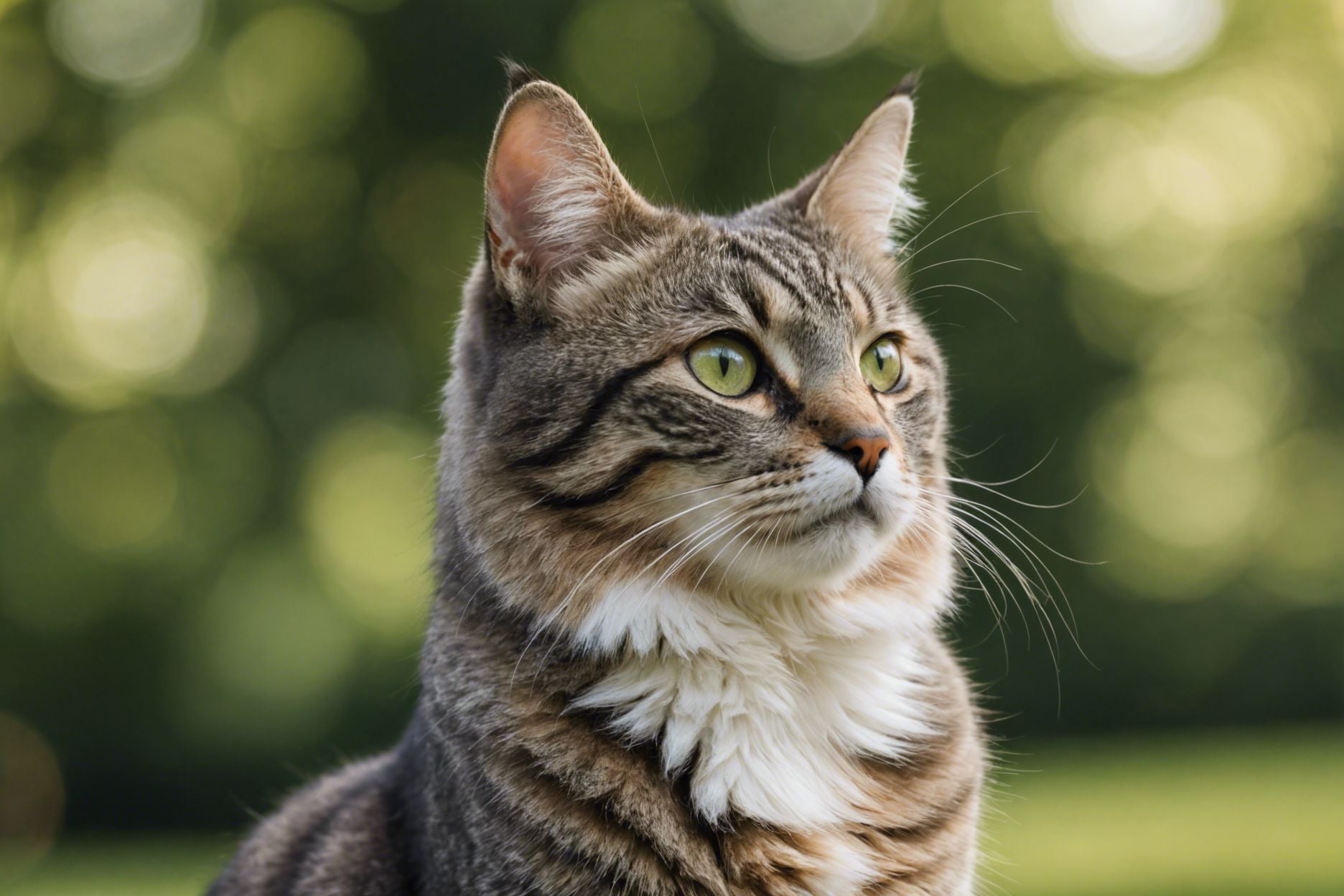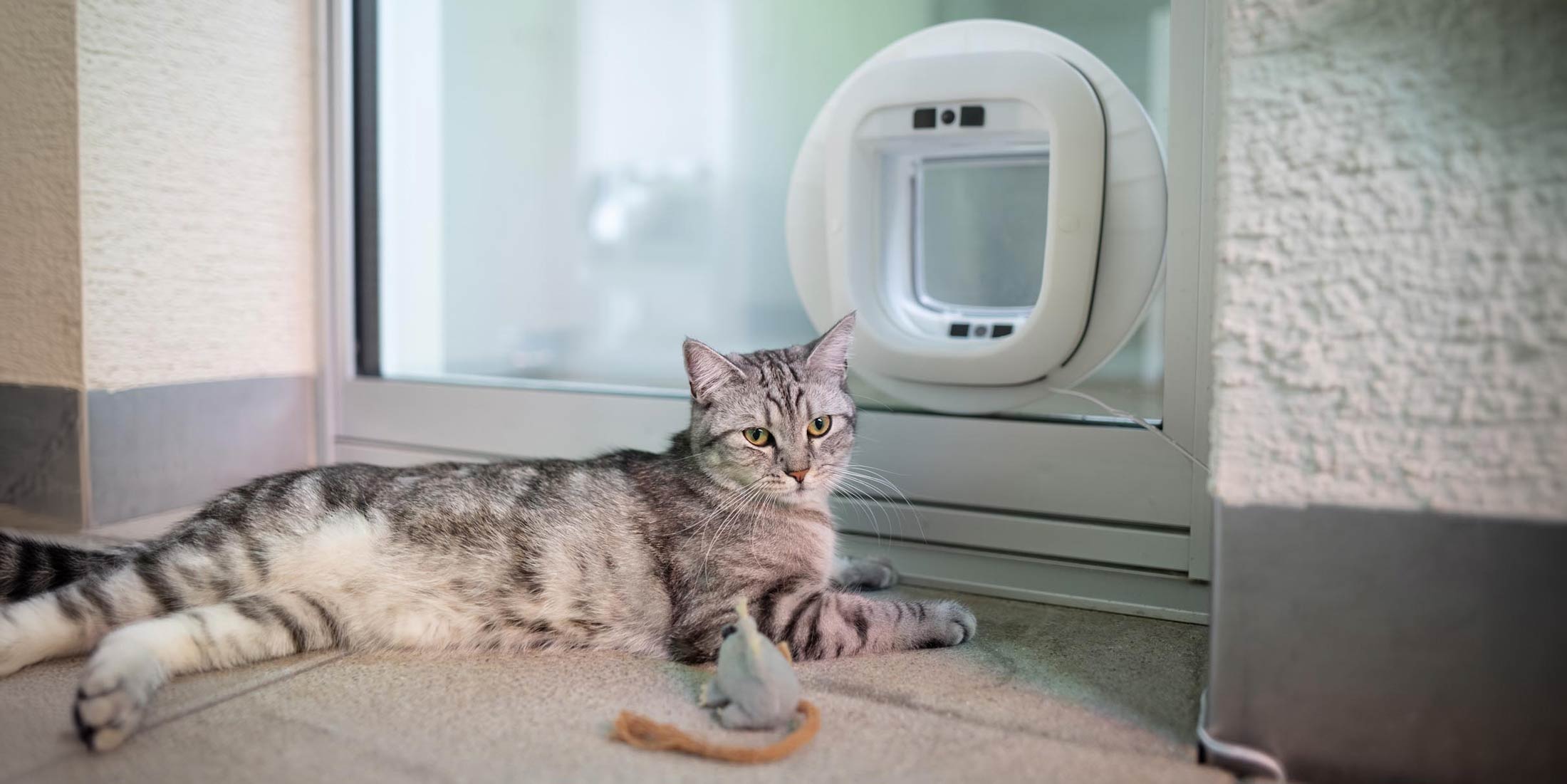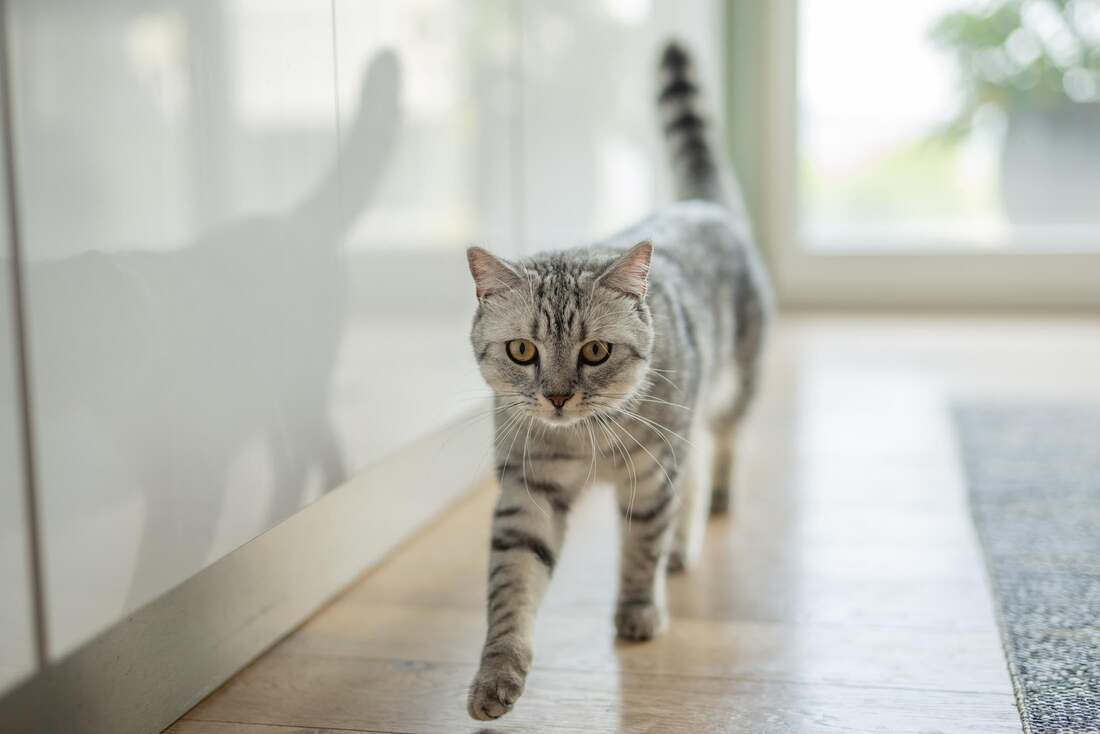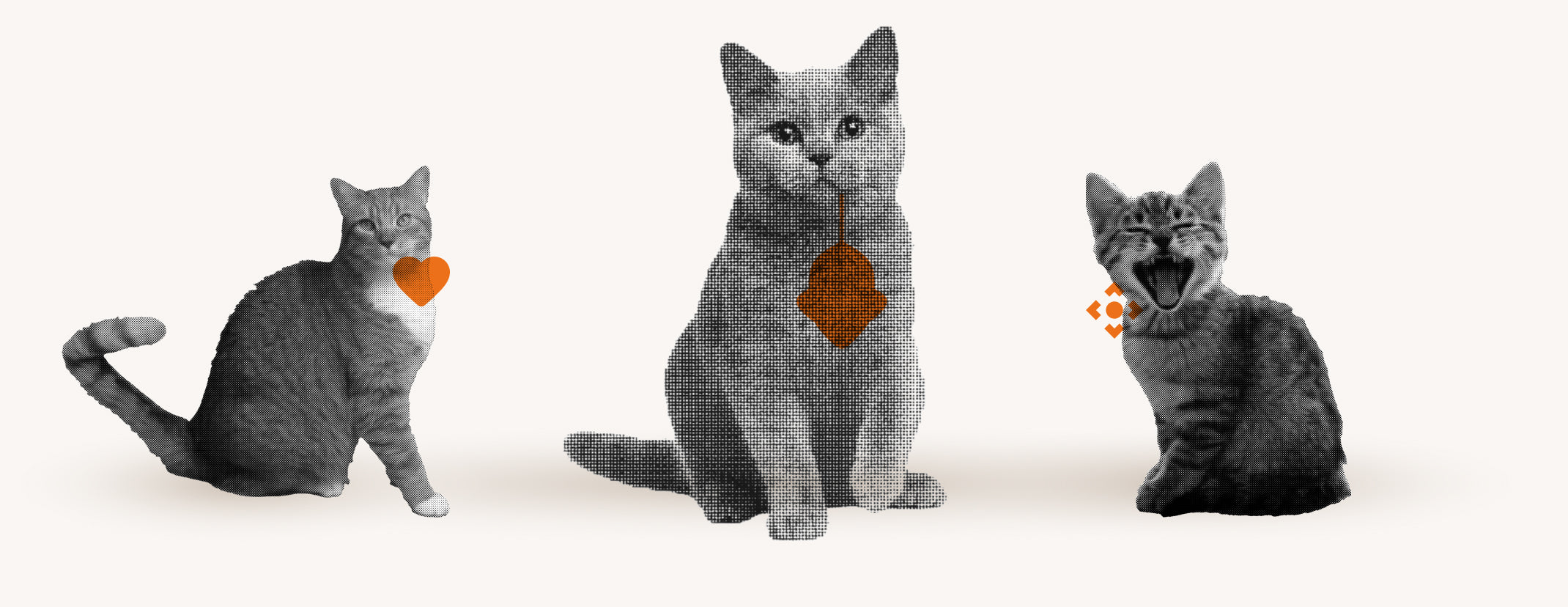End-stage renal failure is a challenge no cat owner wants to face, but if your cat is suffering from severe vomiting, refusal to eat, and dehydration, it is important to take appropriate action.
In the end stage of renal failure in cats, the symptoms are severe, and the average life expectancy without symptomatic therapy is only 35 days.
In this article, you will learn all about the stages of kidney failure, specific symptoms in the end stage, life expectancy, how to improve your cat's quality of life and what treatment approaches are available.
Stages of renal insufficiency in cats and the end stage
Kidney failure in cats is a serious disease that develops gradually over several stages. From the initial stage, in which hardly any symptoms are visible, to the final stage, in which kidney function is severely impaired, the disease goes through several phases. Each stage presents different challenges and requires adapted treatment to maintain the cat's quality of life for as long as possible.
In the final stages of renal failure, the symptoms are particularly pronounced and the cat's life expectancy is greatly reduced. Treatment at this stage is primarily aimed at relieving symptoms and minimizing the cat's suffering. It is important to recognize the signs early and act accordingly to support the cat's well-being during this difficult phase.
Symptoms of End-Stage Renal Failure
In the end stages of renal failure, cats suffer from a number of symptoms that indicate the progression of the disease. Typical signs include severe vomiting, refusal to eat, significant weight loss and general weakness. These symptoms are a clear signal that kidney function is significantly impaired and the cat urgently needs veterinary attention.
In addition to the obvious physical symptoms, behavioral changes can also indicate the end stage of renal failure. Cats may appear increasingly listless, withdrawn, and show an increased need for rest. Nausea and loss of appetite are other signs that often lead to severe weight loss. It is crucial to pay attention to these symptoms in order to provide the cat with the best possible support.
Blood values in end-stage renal failure
Blood counts in the end stage of renal failure show clear changes that indicate reduced kidney function. Creatinine and urea levels in the blood are typically elevated because the kidneys are no longer able to effectively excrete these metabolic waste products. These changes in blood counts are important indicators of the progression of the disease and help the veterinarian to assess the severity of the disease and adjust treatment accordingly.
Life expectancy in end-stage renal failure
The life expectancy of cats with end-stage renal failure is an issue that concerns many cat owners. Unfortunately, without appropriate symptomatic treatment, the average life expectancy is only about 35 days. This underlines the urgency of early diagnosis and treatment . However, life expectancy can vary depending on various factors such as the general health of the cat, the quality of treatment and the adjustment of the diet. Individual and consistent treatment can extend life expectancy in some cases.
It is important to understand that life expectancy in end-stage renal disease depends greatly on the quality of care and treatment. Key factors include:
- Early detection of symptoms and rapid response.
- An adapted diet that relieves the strain on the kidneys.
- Consistent treatment of symptoms and accompanying diseases. Despite the serious prognosis, these measures can help to improve the cat's quality of life in its remaining time and enable it to live as comfortably as possible.
Quality of life in end-stage renal failure

During end-stage renal failure, your cat's quality of life is paramount. It's a time when any small improvement in their well-being can make a big difference. As an owner, you can help by providing a comfortable environment where your cat feels safe and loved. This includes providing them with a quiet place to relax and making sure they always have access to fresh water. It's also important to keep an eye on their needs and try to minimize stressors as much as possible.
Another way to improve your cat's quality of life is to adjust its diet. In the final stages of renal failure, your cat may have less appetite. You can try to make its food more palatable by warming it slightly or offering it its favorite foods. It is important that you take your cat's preferences into account, but also ensure that the food does not put additional strain on the kidneys. These include, for example:
- Avoid foods rich in phosphates and proteins unless otherwise recommended by your veterinarian.
- Offering kidney diet food specifically designed for cats with kidney problems.
These measures can help your cat feel more comfortable and possibly even have a longer life expectancy.
Treatment approaches in end-stage renal failure
In end-stage renal failure in cats, treatment options are limited, but there are still ways to improve your cat's quality of life. One of the main strategies is to relieve symptoms and minimize further damage to the kidneys. This includes controlling blood phosphate levels, preventing the buildup of uremic toxins, and supporting kidney function through innovative therapies such as oral dialysis. These approaches can help reduce your cat's discomfort and promote their well-being.
Working with a veterinarian is crucial to developing the best treatment plan for your cat. In addition to drug therapy, adjustments to your cat's lifestyle and diet may be necessary to support their health. It is important that each treatment is tailored to your cat's individual needs and health status to achieve the best possible results. Early and customized treatment can help slow the progression of kidney failure and improve your cat's quality of life.
prevention of phosphate accumulation
Controlling phosphate levels plays a crucial role in the treatment of cats with renal insufficiency. Phosphate binders can be used to reduce phosphate absorption in the intestine and thus prevent phosphate accumulation in the blood. This is important because high phosphate levels can further damage the kidneys and accelerate the progression of the disease. In addition, a low-phosphate diet can help control phosphate levels. Regular monitoring of phosphate levels by a veterinarian is essential in order to adjust therapy if necessary.
Prevent accumulation of uremic toxins
Uremic toxins that build up in the blood can have a significant impact on your cat's health. Reducing the intake of protein in the diet can help reduce the amount of these toxins. Special renal diets that contain fewer but high-quality proteins are often recommended. In addition, certain medications and therapies can be used to promote the elimination of these toxins and minimize their negative effects on the body. Regularly checking blood values helps to evaluate the success of the measures and adjust treatment if necessary.
Oral dialysis as end-stage therapy
Oral dialysis is a relatively new treatment for cats with end-stage renal disease. It works by reducing the buildup of uremic toxins in the intestines before they can enter the blood. Specialized adsorbents added to the food bind these toxins in the digestive tract. This can help relieve the symptoms of uremia and improve your cat's quality of life. It is important to perform this form of therapy under veterinary supervision to keep an eye on the dosage and your cat's overall health.
Nutritional recommendations for cats in the final stages

Diet is a key component in the management of renal failure in cats, especially in the end stages of the disease. A customized diet can help relieve the strain on the kidneys and improve your cat's quality of life. It is important to choose foods that are low in protein and phosphate. This means that the diet should contain fewer proteins that could put a strain on the kidneys, while also having a low phosphorus content to slow the progressive destruction of the kidney tissue. These special diets are designed to minimize the production of waste products that would otherwise have to be excreted by the kidneys.
In addition to adjusting the main diet, it is also important to pay attention to your cat's fluid intake. Cats with kidney failure tend to require more water, so make sure fresh water is always available and encourage your cat to drink regularly to support kidney function. Some tips to encourage fluid intake include:
- Offer wet food as it contains more moisture than dry food
- Providing several water bowls in the apartment
- Use of cat drinking fountains to increase interest in drinking
These measures can help relieve the symptoms of kidney failure and make the rest of your cat's life more comfortable.
Support for cats with kidney disease with the intelligent cat flap from Flappie
Cats with renal insufficiency require extra careful care and a stress-free environment to improve their quality of life. This is where Flappie 's smart cat flap comes in. It prevents your cat from bringing home prey such as mice or birds, which not only increases hygiene in the home but also minimizes stress for the cat and potential health risks. Selective access control and prey detection through camera and AI technology are key features that ensure your cat comes home without unwanted "gifts".
Using the Flappie cat flap offers numerous benefits for cat owners and their furry friends, especially those with health challenges such as kidney failure. A stress-free home is vital to your cat's well-being. With the Flappie app you can:
- Control the cat flap from anywhere
- Receive push notifications when your cat wants to come home
- View videos and photos of your cat to make sure he or she is doing well
These features help make your cat's life safer and more comfortable while keeping your home clean and prey-free.
Frequently Asked Questions
How long can a cat with kidney failure live?
Unfortunately, without appropriate symptomatic treatment, the average life expectancy of cats with end-stage renal disease is only about 35 days. However, life expectancy can vary depending on various factors such as the cat's general health, the quality of treatment and dietary adjustment.
What is the end of renal failure?
In the end stages of renal failure, cats suffer from a series of symptoms such as severe vomiting, refusal to eat, significant weight loss and general weakness, which indicate the progression of the disease. These symptoms are a clear signal that kidney function is significantly impaired and the cat urgently needs veterinary attention.





Share:
Cat Symptoms Diseases: A Comprehensive Guide
Blood test for cats: costs and useful information 2024